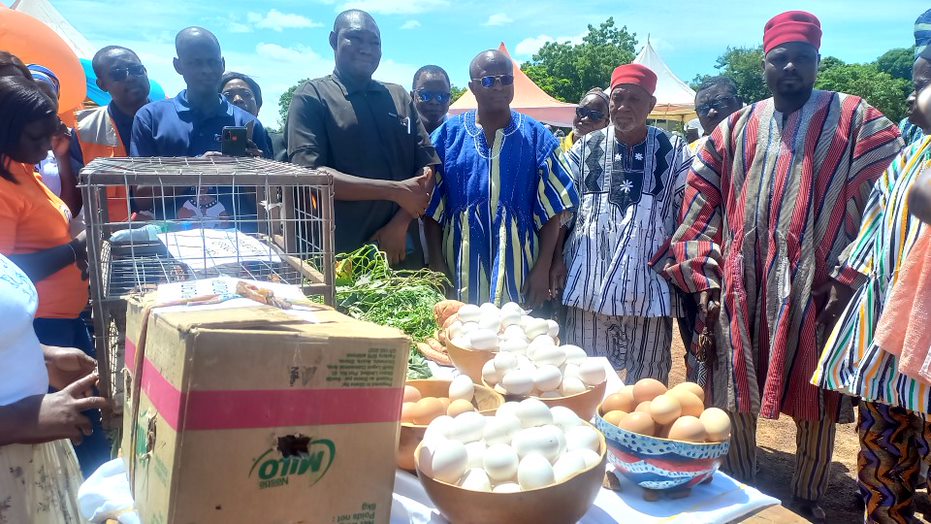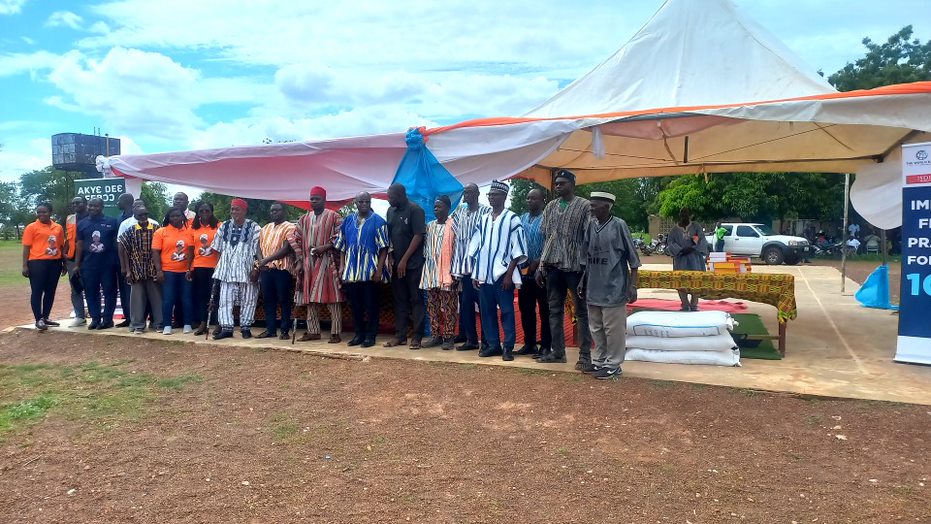By Anthony Adongo Apubeo
Sirigu (U/E), July 16, GNA – The implementation of an early childhood nutrition project by World Vision Ghana in the Kassena-Nankana West District of the Upper East Region is helping to address childhood nutrition challenges among children under two years and improving livelihoods of deprived communities.
The three-year initiative dubbed, “Improved Feeding Practices for the First 1000 Days”, has contributed to improving household nutrition and saving many pregnant women and children from acute anaemia and malnutrition.
It achieved these successes through the promotion of household farming, exclusive breastfeeding, complementary supplements (KOKO PLUS) and maternal dietary diversity among 24 beneficiary communities in the district.

Madam Atisiye Alobgya, a 40-year-old woman from Kandiga, who was supported by the project to rear fowls, indicated that the project had helped to increase her household nutrition, which had contributed to improving the health status of her family.
“I visited the hospital with my daughter who was pregnant and was left with about a month to deliver,” she said, adding, “The doctor told us that she would require a blood transfusion during her delivery because her blood level was low and that got us worried.
“So, I started giving her eggs from the fowls I was rearing, and it helped replenish her blood and she delivered successfully without requiring blood transfusion and the baby is healthy.”
Madam Ernestina Abelingo, another beneficiary, indicated the exclusive breastfeeding and complementary supplement component had also helped to improve child nutrition among children in her family.
She said through the knowledge of exclusive breastfeeding acquired and how to express breast milk, she had been able to take care of her daughter’s child while her daughter continued to attend school each day.
“Any day she was going to school, she will express the breast milk and put it down so I can feed the baby with that and that was what we did for the first six months and we have now added the KOKO PLUS together with local foods that World Vision Ghana taught us how to prepare and the baby is strong and does not fall sick,” she added.
At a durbar to end the project in the district, Ms Awurabena Quaba Dadzie, the Health and Nutrition Technical Manager, at World Vision Ghana, explained that the project, which sought to improve the feeding of children for the first 1000 days of life through nutrition-sensitive agriculture interventions, had support from the Japan Social Development Fund through the World Bank and the Ministry of Finance.
Ms Dadzie explained that child nutrition continued to confront the achievement of the Sustainable Development Goals.
She said statistics from the Ghana Health Service Demographic Survey report for 2022 revealed that four out of 10 children were anaemic, six out of 10 pregnant women were also anaemic, two out of 10 children were stunted while one out of 10 children, nationwide, was underweight.
Over the last three years of the project, over 1000 children had benefitted from micronutrient supplements, 5,000 households with dietary diversity and built capacities of 600 farmers as well as 700 women, to improve the nutrition of their children, she said.
“In all, we trained over 1000 members of mother-to-mother support groups and gave them over 5,000 poultry birds, we also train health workers and agriculture extension officers.
“We have over-achieved our targets, so, now, we are looking at opportunities and more funding to be able to scale it up to at least five more districts in the region and other districts we will want to work in,” she added.

Naba Atogumdeya Roland Awara III, the Paramount Chief of the Sirigu Traditional Area, commended World Vision Ghana for contributing to improving maternal and child health among women and children in the district through nutrition and called for investment to improve the livelihoods of the people in the area.
GNA